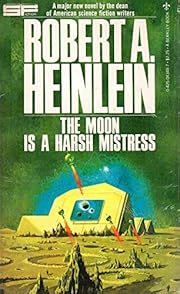My novel The Magic Battery is now available as an e-book on Smashwords. As an expression of thanks for reading my blog, I’m offering it for $1.99, instead of the usual $2.99, with the coupon code RW83R through the end of June.
This is a novel for fans of thoughtful historical fantasy. It presents an alternate Germany where magic works, and where the authorities allow only Christian men to practice it. Thomas Lorenz discovers a way to store magic spells in gadgets that people can buy or rent, putting magic in the hands of anyone with a little money. The conflict that develops parallels the effects of the real-life innovations of Luther, Paracelsus, Copernicus, and others.
In sixteenth-century Saxony, magic is a trade. Mages draw power from the World Behind, but they don’t understand it. Thomas knows that magic needs to be scientific, that it follows mathematical laws. He draws inspiration from his master Albrecht Ritter, who knows nothing is ever “good enough,” his teacher Johan Brandt, who is hiding an infamous past, and later his wife Frieda, who sees the prospect of a more enlightened future. He faces the persistent opposition of Heinrich Gottesmann, a fanatical lawyer and witch hunter. He learns that there is more at stake than just a new way of making lamps.
I’ve been to some of the places used in the book: Heidelberg, Wernigerode, Quedlinburg, Hildesheim. I’ve engaged in considerable historical research to get the period right. Apart from the magical elements, the setting is as close to the historical Germany of the 1540s as I could make it. None of the characters hold 21st-century ideas; that would be absurd. However, Thomas and especially Frieda see beyond their time.
Links, reviews, and shares will help to get the word out. You can link to the Smashwords page or to my page on this site.
 Robert Heinlein’s The Moon Is a Harsh Mistress is one of his most enduringly popular novels, especially among libertarians. Doing these book posts gave me an excuse to read it for the first time in many years.
Robert Heinlein’s The Moon Is a Harsh Mistress is one of his most enduringly popular novels, especially among libertarians. Doing these book posts gave me an excuse to read it for the first time in many years.  The early 1930s were a bad time for people who loved freedom. The Communists had taken over in Russia, as had the Fascists in Italy, and the Nazis were fast gaining power in Germany. The world economy had just crashed. In 1932, Aldous Huxley published
The early 1930s were a bad time for people who loved freedom. The Communists had taken over in Russia, as had the Fascists in Italy, and the Nazis were fast gaining power in Germany. The world economy had just crashed. In 1932, Aldous Huxley published  A movie was made of it in 1984. Ende didn’t like it. It has some scenes that live up to the book, which is saying a lot. As a whole, though, it fails. It stops about halfway through the novel and tacks on a nonsensical ending. The most gripping or frightening scenes from the book are omitted or toned down.
A movie was made of it in 1984. Ende didn’t like it. It has some scenes that live up to the book, which is saying a lot. As a whole, though, it fails. It stops about halfway through the novel and tacks on a nonsensical ending. The most gripping or frightening scenes from the book are omitted or toned down. Piranesi without saying too much. As in an adventure game, the world-building comes to the foreground. The narrator lives in a huge house which is his entire world. It has hundreds of halls and thousands of statues. The staircases seem scaled for giants. The House is so large that it has tides, seasonal snowfall, and a wildlife ecosystem. Yet as far as the narrator knows, it has only two inhabitants. The narrator is as much of a mystery as the house is, even to himself.
Piranesi without saying too much. As in an adventure game, the world-building comes to the foreground. The narrator lives in a huge house which is his entire world. It has hundreds of halls and thousands of statues. The staircases seem scaled for giants. The House is so large that it has tides, seasonal snowfall, and a wildlife ecosystem. Yet as far as the narrator knows, it has only two inhabitants. The narrator is as much of a mystery as the house is, even to himself.